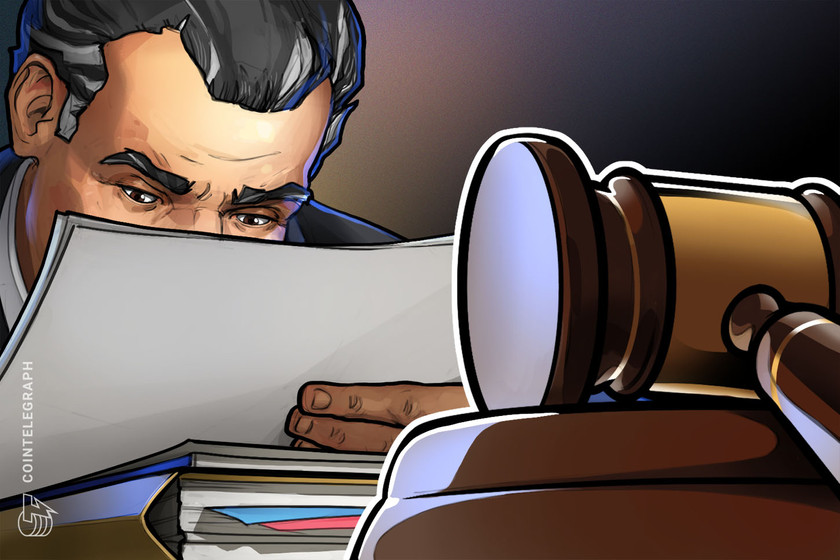SBF’s lawyers move to block release of bail guarantors’ identities

The appeal, filed on the last possible day, prevents the names of two bond guarantors for SBF from being revealed until at least Feb. 14.
The names of two guarantors who signed off on part of Sam Bankman-Fried’s $250 million bail bond will continue to remain a secret for now.
A judge has also rejected an agreement that would have permitted Bankman-Fried to use certain messaging apps.
Bankman Fried’s lawyers filed an appeal to block the release of the guarantors’ names last-minute on Feb. 7. The appeal did not contain further arguments against the disclosure but it will prevent the order from being enforced until Feb. 14 to allow for an application for a further stay.
The appeal was expected after a Jan. 30 ruling in which United States District Judge Lewis Kaplan granted a joint petition from eight major media outlets seeking to unseal the guarantors’ names.

At the time, Kaplan noted his order was likely to be appealed given the novelty of the circumstances.
He stated arguments by Bankman-Fried’s lawyers that said guarantors “would face similar intrusions” as Bankman Fried’s parents lacked merit given the size of their individual bonds was much smaller at $200,000 and $500,000.
Bankman Fried’s parents — Joseph Bankman and Barbara Fried — were the other two parties who signed off on the bond.
Additionally, the judge said the guarantors had voluntarily signed individual bonds in a “highly publicized criminal proceeding,” and had therefore opened themselves up to public scrutiny.
Related: US Attorney requests SEC and CFTC civil cases against SBF wait until after criminal trial
Meanwhile, on Feb. 7 Kaplan rejected a joint agreement between Bankman-Fried’s legal team and prosecutors which would have modified the bail conditions and allowed Bankman-Fried to use certain messaging apps.
Kaplan did not provide a reason for denying the motion but added the subject would be further discussed in a Feb. 9 hearing.
Kaplan ruled on Feb. 1 that Bankman-Fried was barred from contacting FTX or Alameda Research employees citing a risk of “inappropriate contact with prospective witnesses” after it was revealed the former CEO had been contacting past and present staff.

